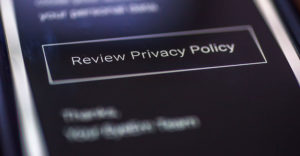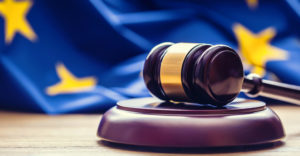
British mobile device software design firm ARM has ordered its staff to stop working with Chinese smartphone giant Huawei and its subsidiaries, in compliance with a ban issued by President Trump, the BBC reported Wednesday.
Under an executive order Trump signed last week, foreign companies and individuals are prohibited from buying United States technology and services, among other things, without first obtaining special approval from the U.S. government.
The U.S. Commerce Department has added Huawei and 70 affiliates to its Entity List, which imposes restrictive licensing requirements for purchasing U.S.-made parts and components.
ARM, owned by Japan’s Softbank’s Vision Fund, has eight offices in the United States. It apparently believes it’s affected by the Trump administration’s ban because its designs contain technology that originates in the U.S.
Faster Than the Speed of Light
“This story is changing so much so quickly, it’s hard to say anything definitive,” remarked Gerrit Schneemann, senior analyst at IHS Markit.
- Google banned Huawei from Android updates and Google apps after Trump announced his ban;
- One day after issuing his executive order, Trump gave Huawei a 90-day extension, to Aug. 19, for existing products and services;
- Google followed suit, extending its services;
- Chipmakers Intel, Qualcomm, Xilinx and Broadcom said they will stop selling to Huawei;
- Chipmakers’ stock prices plunged following the news;
- British Telecom-owned network EE said it will exclude Huawei phones from approved devices for its 5G services coming later this year;
- Vodafone, the UK’s third-largest mobile operator, said it won’t sell the Huawei Mate 20 X 5G when its new network goes online July 3;
- Major Japanese mobile carriers KDDI and Softbank will postpone sales of Huawei’s new smartphone models for their upcoming Au and Y!mobile services, while another carrier, NTT Docomo, will stop taking orders for new Huawei handsets; and
- Microsoft has stopped selling the Huawei MateBook X Pro online.
The cutoffs from Google and Microsoft “are likely the most painful, because once the stay is lifted, that will deny patches for Huawei customers’ devices,” said Rob Enderle, principal analyst at the Enderle Group.
That “will make their related products excessively risky for buyers,” he told the E-Commerce Times.
“I’m sure there’s a better-safe-than-sorry element to [cutting ties with Huawei] — not just for ARM, but in general,” Schneemann told the E-Commerce Times.”
Patchwork Quilt
National security is the stated reason for Trump’s ban, but “the hardware isn’t the problem,” noted Chris Taylor, research director at Strategy Analytics.
“If governments and consumers are worried about security and privacy, they should ban or regulate Google, Internet-tracking apps, Android, Facebook, Twitter, and most apps running on phones,” he told the E-Commerce Times.
“The sanctions on Huawei amount to taking it hostage for leverage in trade negotiations with China,” Taylor said. They “set a bad precedent and are not warranted.”
On the other hand, U.S. bans on exports of certain critical items to its allies “have kept supercomputers from being sold to Russia and states that espouse terrorism,” noted Ray Wang, principal analyst at Constellation Research.
“The Huawei ban is a continuation of the greater discussion beyond trade. We are dealing with national security, trade, sovereignty and different world views,” he told the E-Commerce Times.
The U.S. also is considering blacklisting five Chinese video surveillance vendors over the Chinese government’s treatment of its Muslim Uighur minority, Bloomberg reported.
Making Companies Poor Again
Huawei is the smartphone industry’s No. 2 original equipment manufacturer, behind Samsung. It shipped more than 59 million units in Q1 according to IHS Markit.
ARM technology is used in Huawei’s Kirin chipsets. Its annual sales to Huawei total between US$320 million and $345 million, Constellation’s Wang said.
Huawei has vowed to develop its own technology, but that would be a steep hill to climb.
The ban will cripple much of ARM’s 5G plans and business outside of China, and create huge problems with IP in China, Enderle pointed out.
Huawei bought about $21 billion worth of chips from outside vendors last year, according to Reuters. Its HiSilicon chip division produced another $7.5 billion worth of chips.
China might replace ARM and x86 processors because of the ban, which could cost global processor sales the permanent loss of “a ton of Asian business,” Enderle noted.
Other suppliers that will be impacted:
- Corning Gorilla Glass;
- Micron Flash storage;
- Skyworks and Qorvo 3G and LTE chips;
- Chip design software vendors Cadence Design Systems and Synopsys; and
- U.S. suppliers of specialty lasers and modules such as NeoPhotonics, Lumentum and Finisar.
Killing 5G Hopes
The impact of the U.S. ban on Huawei’s telecom networking customers is unclear.
Huawei has 29 percent of the global telecom equipment market, according to the Dell’Oro Group.
It is a major player in the nascent 5G arena, and the U.S. ban “will make the wireless industry more dependent on 5G infrastructure equipment that’s not as advanced as Huawei’s,” Strategy Analytics’ Taylor noted.
This will “raise costs and delay rollout, particularly where contracts have already been awarded to Huawei,” Taylor said. “Strategy Analytics is still trying to quantify this.”
Huawei could end up being the dominant 5G player in China, with Western companies locked out, Enderle warned.
There are already two camps in high tech, Constellation’s Wang said. “It’s China versus the U.S., and this will expand into networking, chips, 5G and IoT standards.”
























































Social Media
See all Social Media